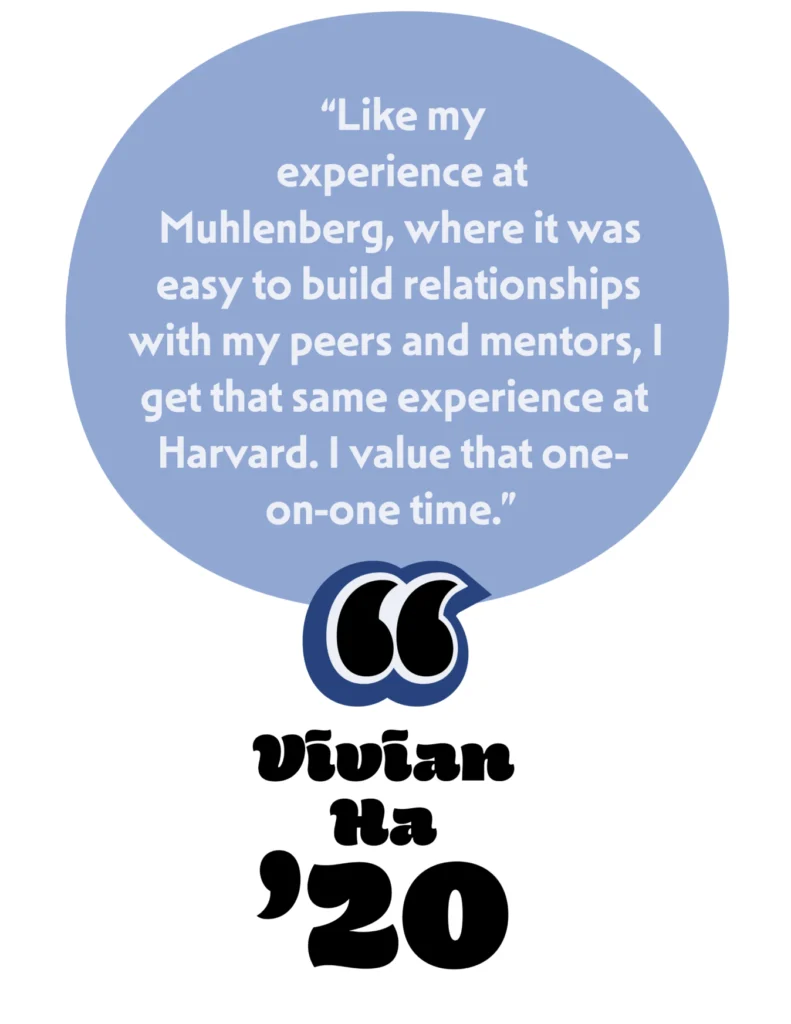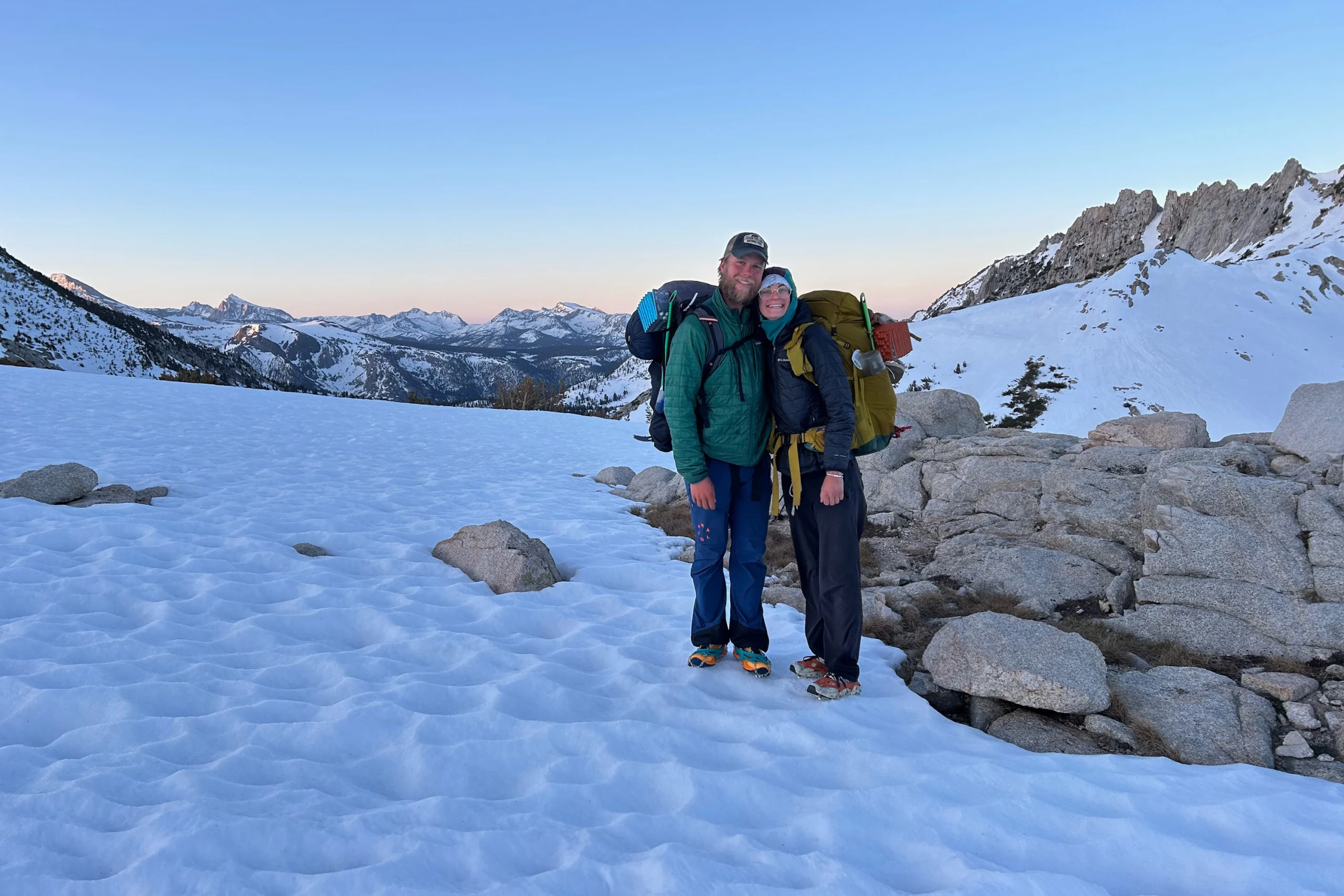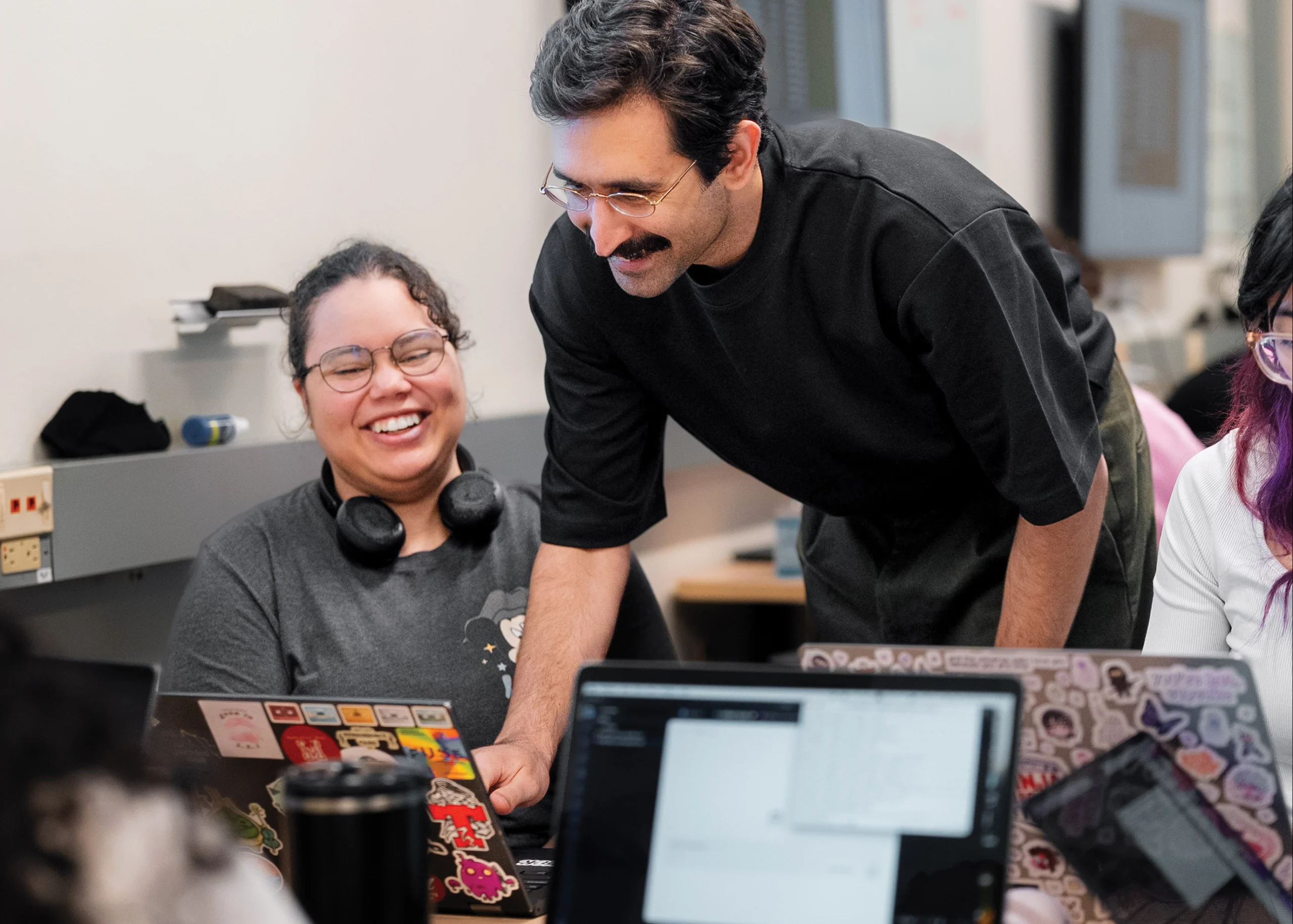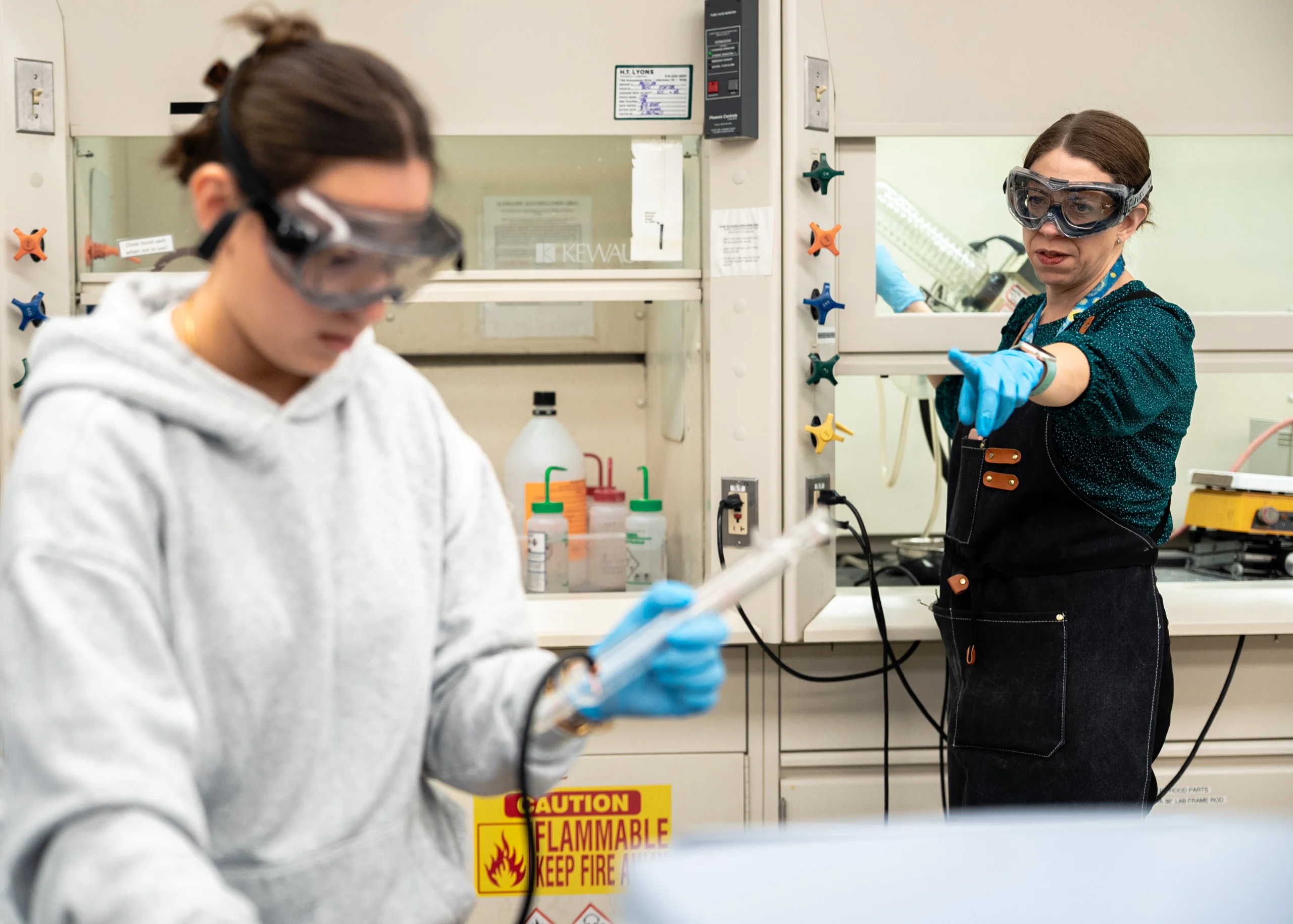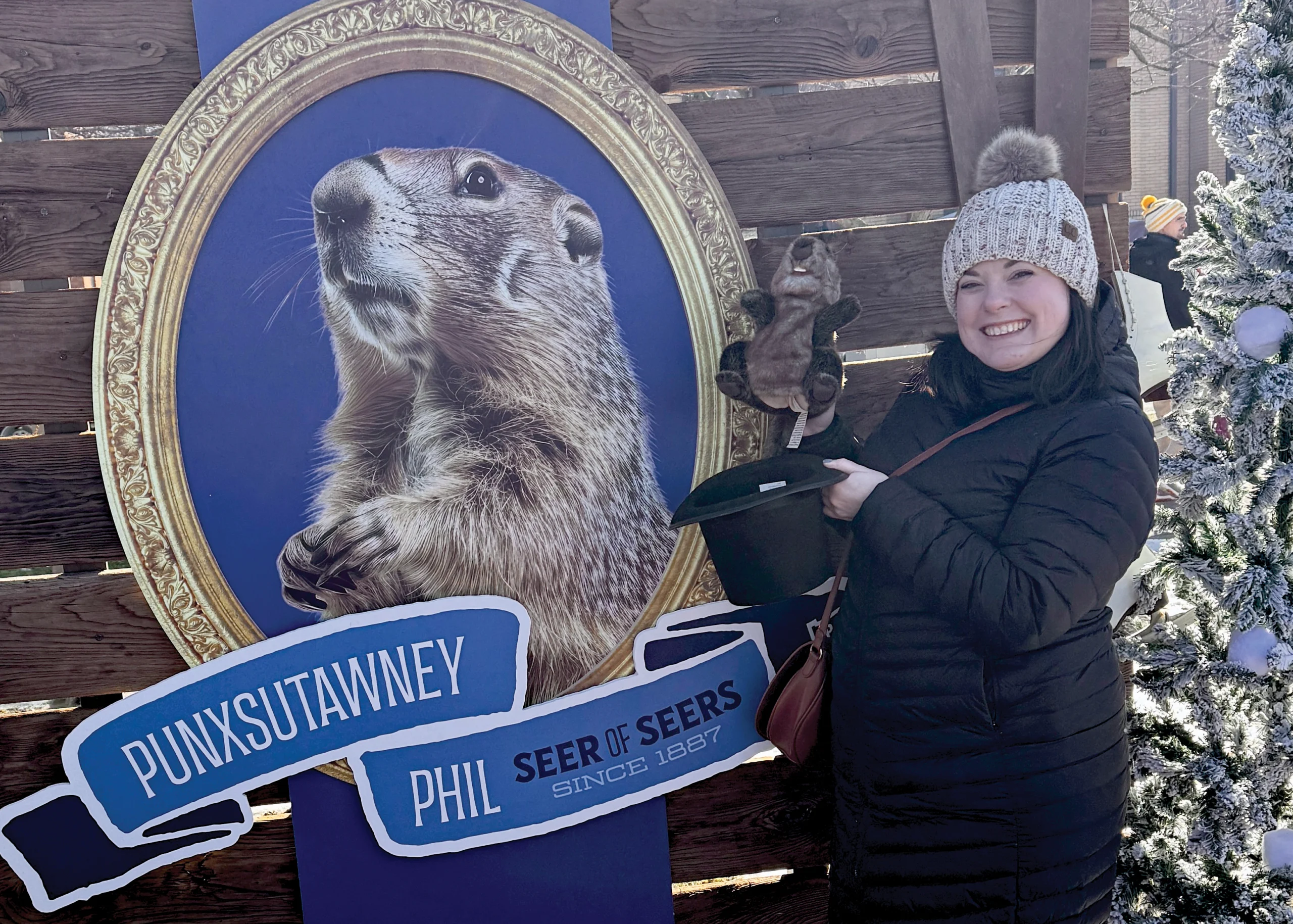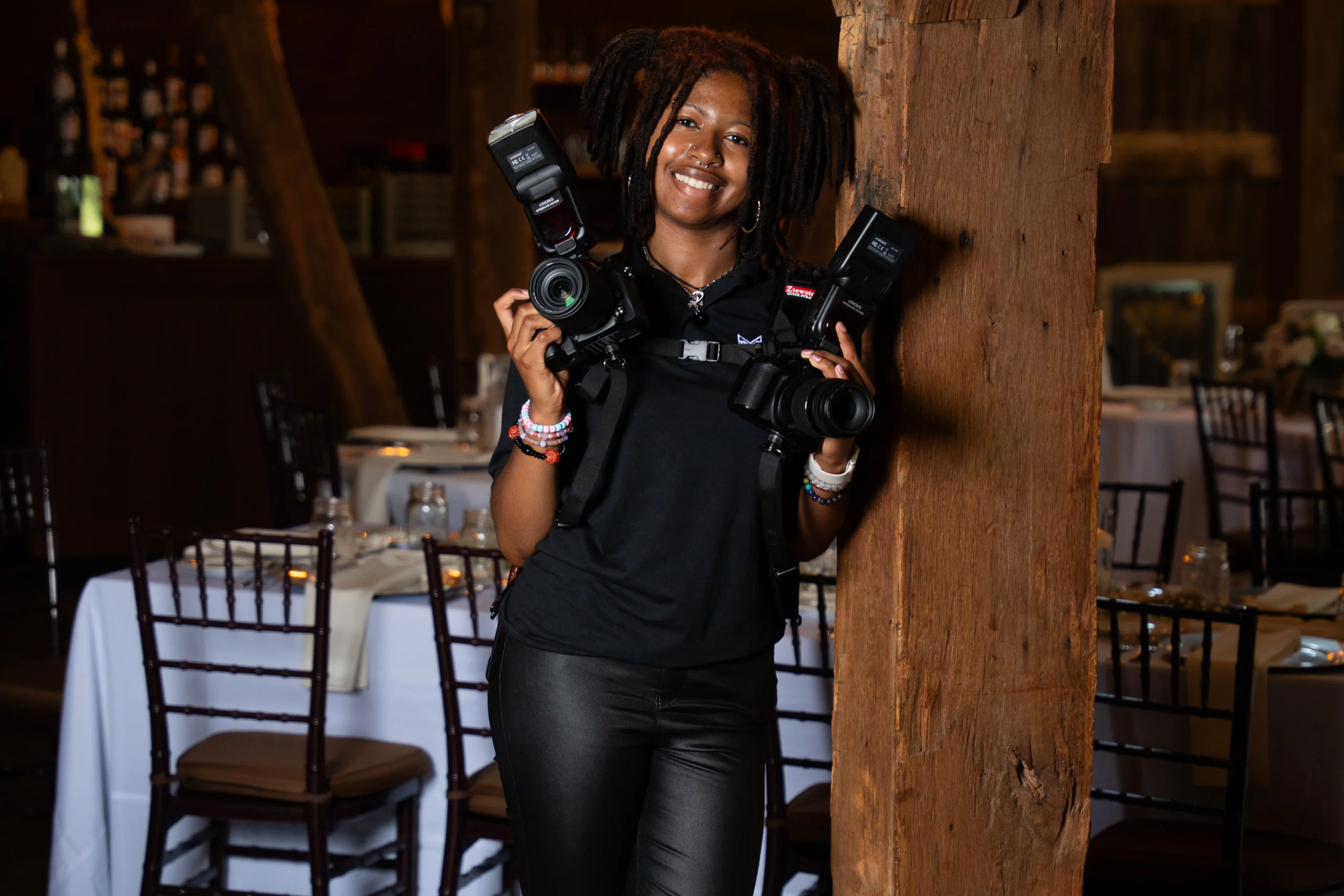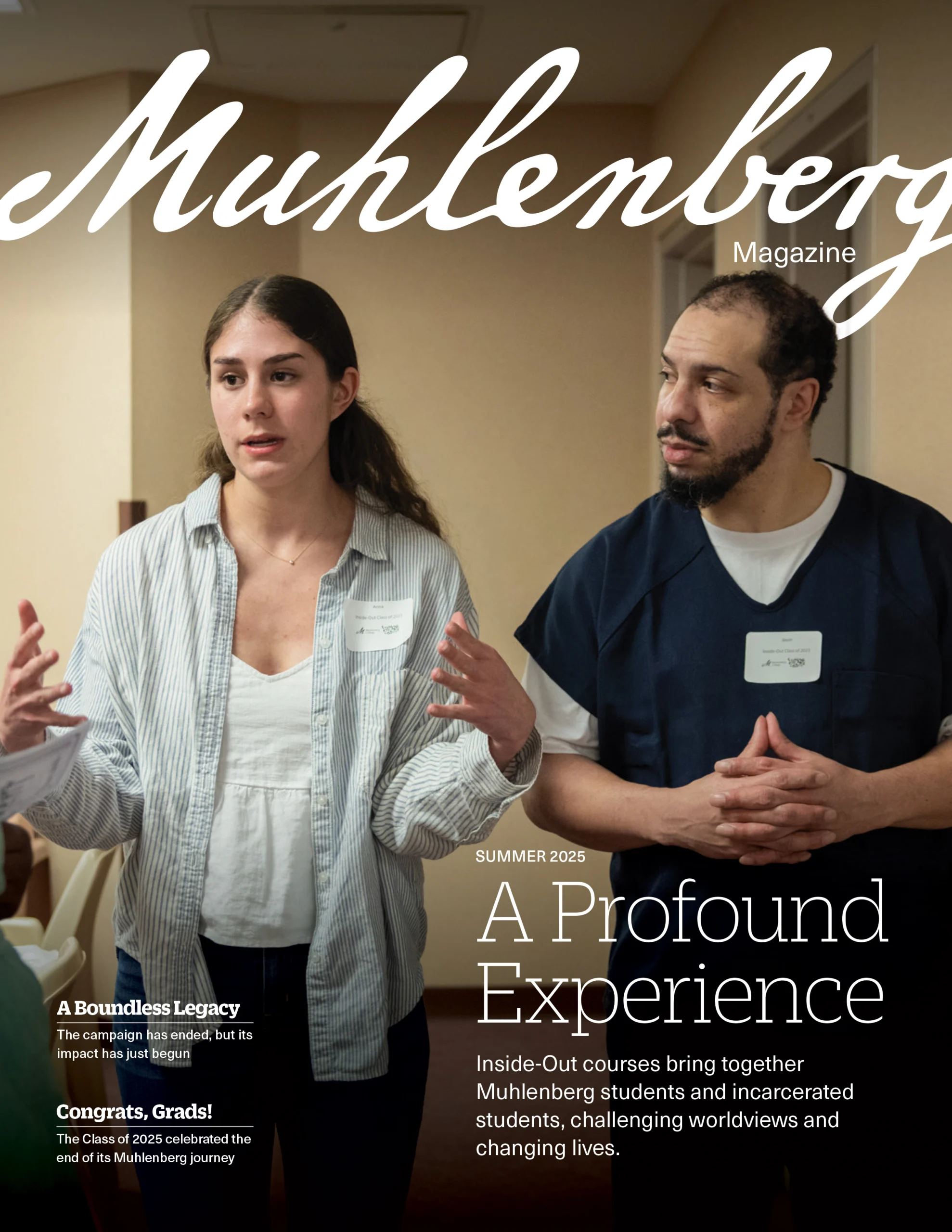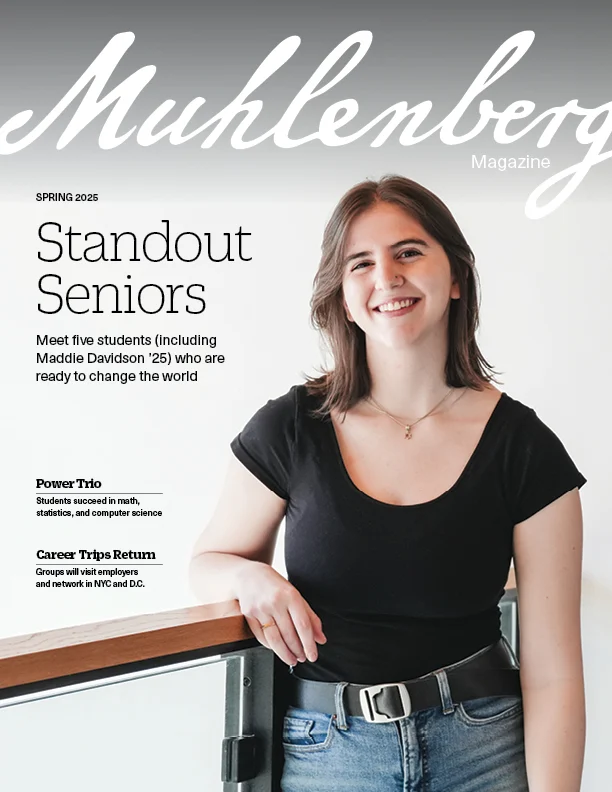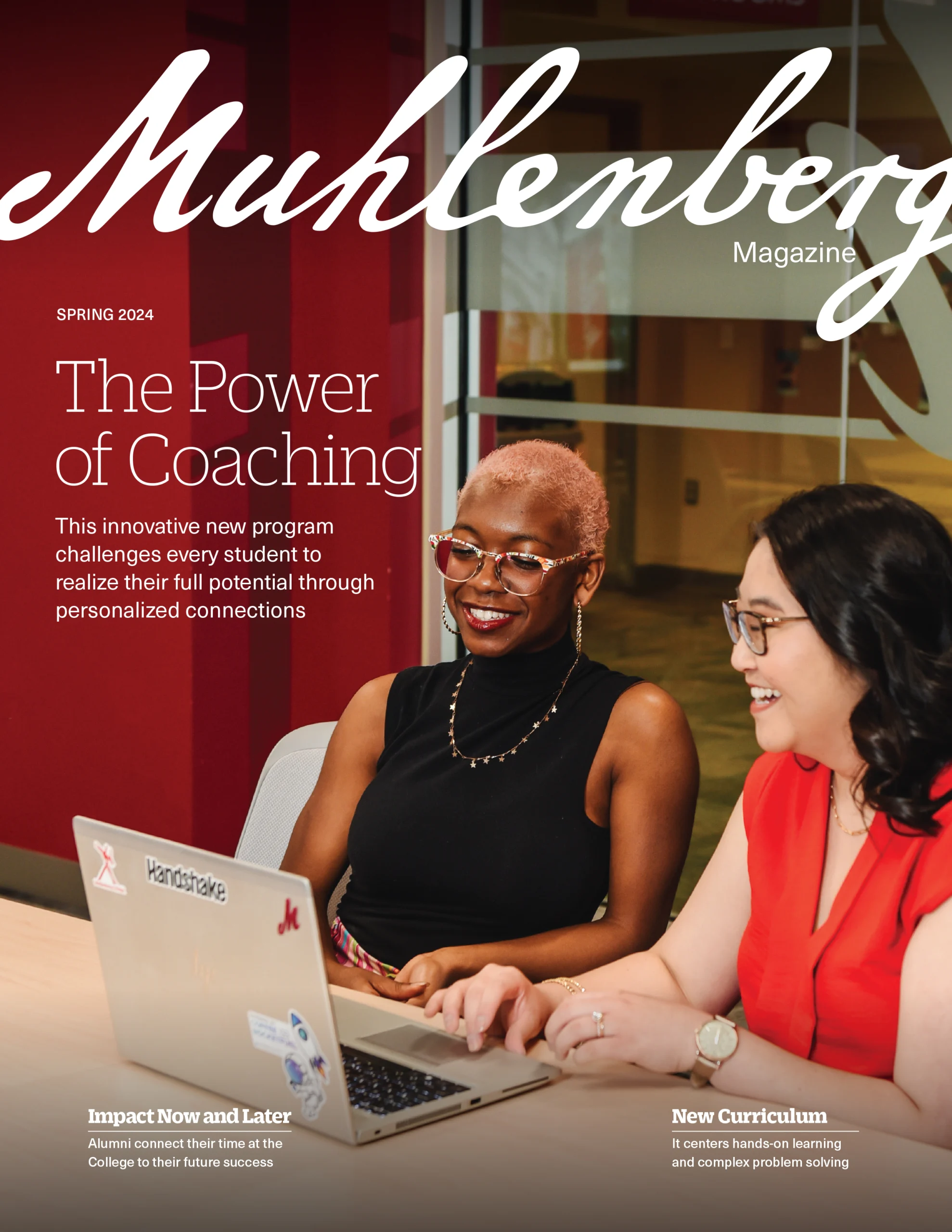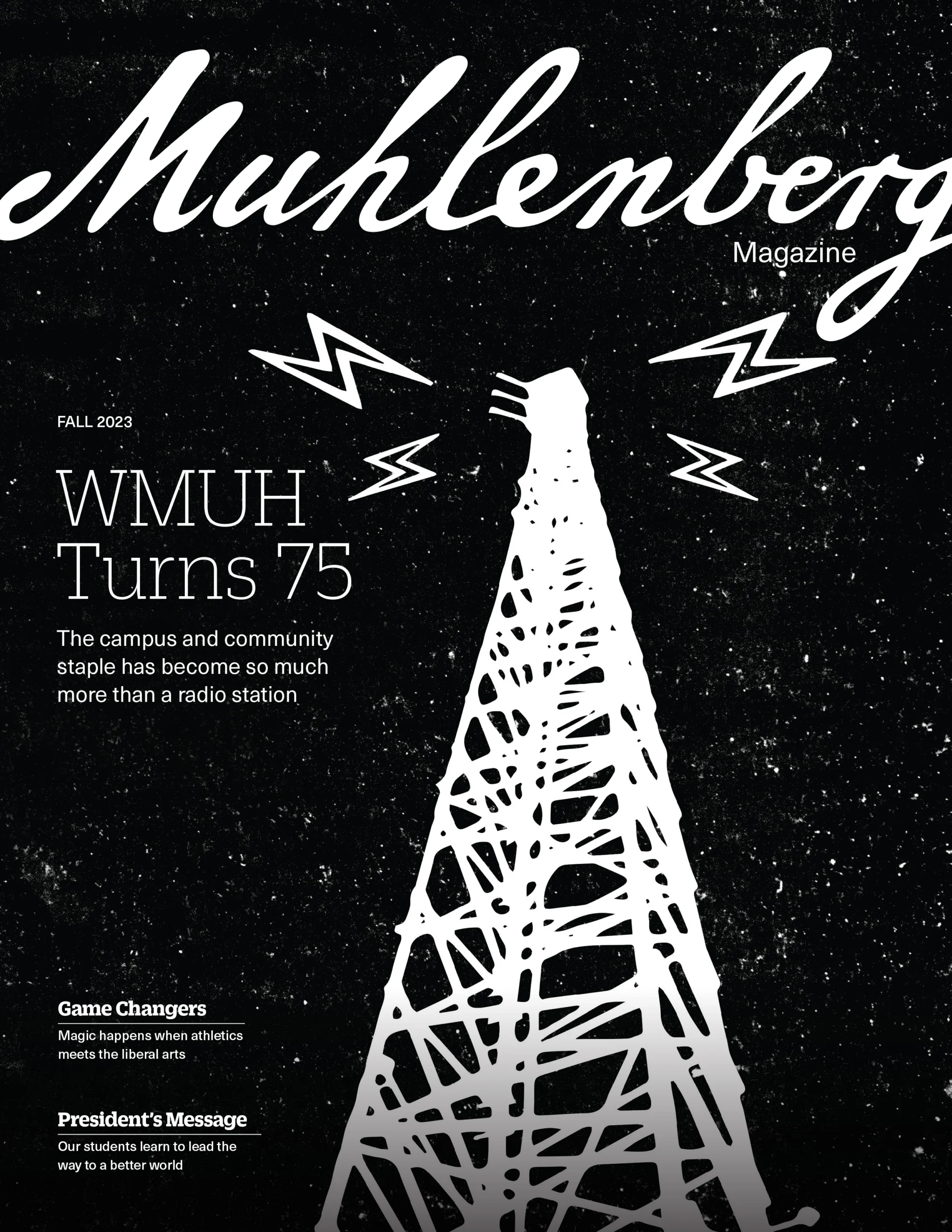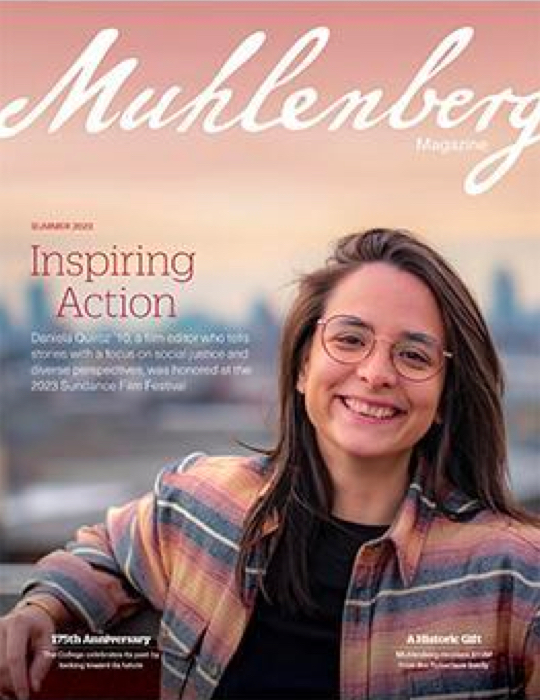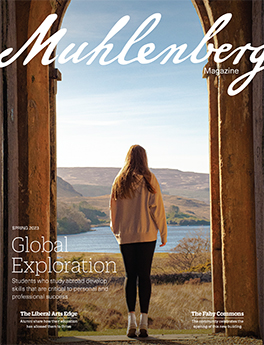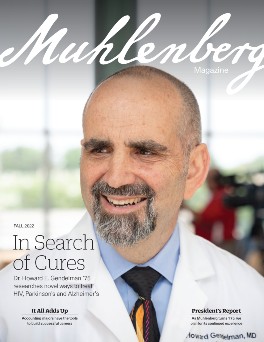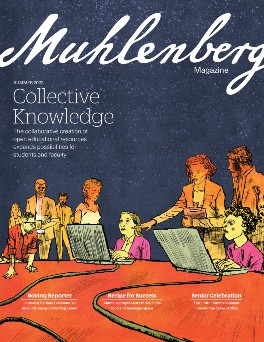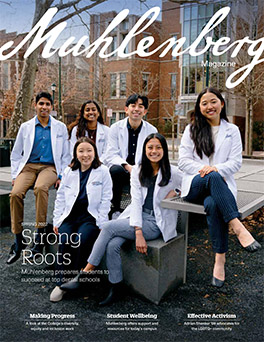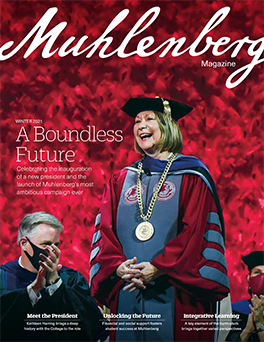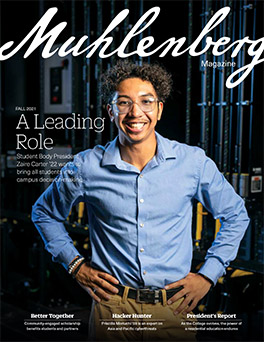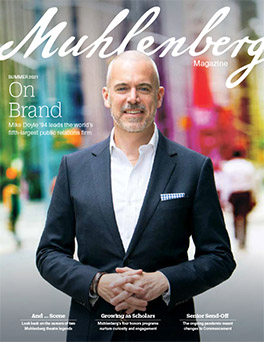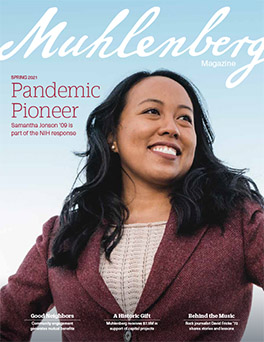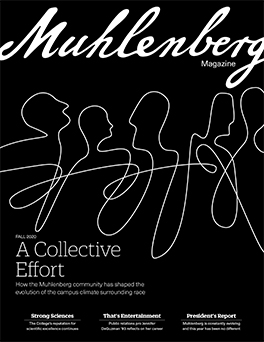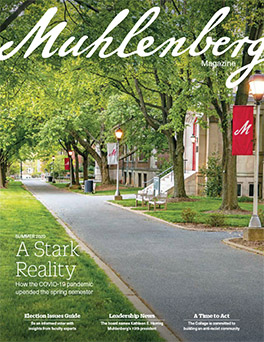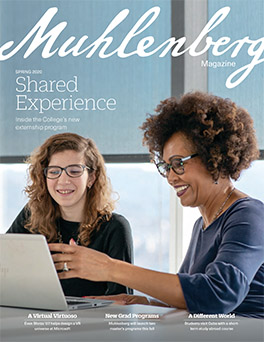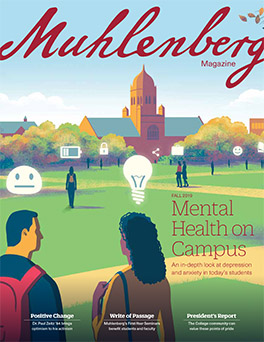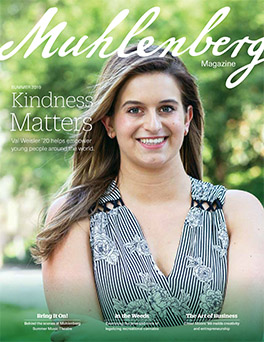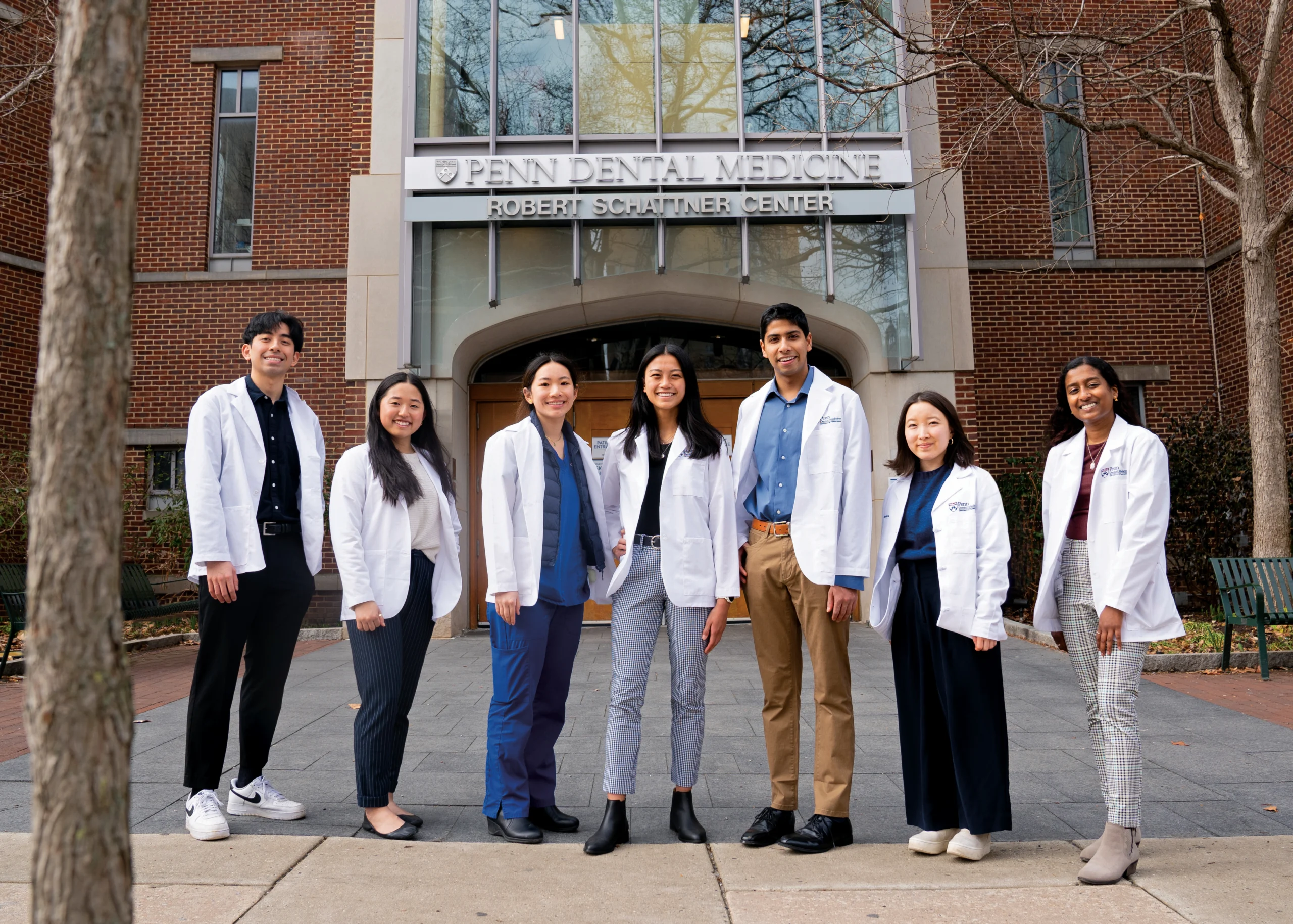
Something to Smile About
The College has a reputation for producing alumni who go on to attend—and excel at—some of the top dental schools in the country.
The Harvard School of Dental Medicine is the oldest university-based dental school in the country and has one of the smallest classes. Just 35 students matriculate each year. Vivian Ha ’20 is part of Harvard Dental’s Class of 2024 and the first—but not the last—recent alum to go there. Betty Ben Dor ’21 started at Harvard Dental the year after Ha, and Christina Xu ’22 will be starting there this fall.
“It’s really exciting that students are getting into Harvard,” says Director of Health Professions Advising Cailín Pachter. “With a lot of the schools our students tend to go to, a Muhlenberg student will go and be very successful and do very well. Then, the admissions folks are like, ‘We want more of them. Send us more.’ We make inroads.”
The College’s reputation precedes its alumni at other prestigious dental schools as well. Muhlenberg has had a partnership with the University of Pennsylvania School of Dental Medicine since 1987 that allows students to earn a bachelor’s degree in biology from Muhlenberg and a Doctor of Dental Surgery from Penn in seven years instead of eight. This program is one of only about 20 accelerated dental programs in the country, which helps attract strong high school students who know they want to pursue dentistry—even some who don’t end up pursuing the program itself. (For example, Alyssa Hanel ’18, who is finishing up at the Columbia University College of Dental Medicine, learned about Muhlenberg after searching for accelerated programs but ultimately decided to matriculate as a traditional student.) The College gets up to six slots for the Penn program annually and in recent years, we’ve filled them all, Pachter says.
Predental alumni tend to remain in the northeast, Pachter says, and other recent grads have gone onto the NYU College of Dentistry (including Dr. Elizabeth Garrison ’17, who graduated at the top of her class at Muhlenberg and again at NYU, which had a class of more than 360 students), the Temple University Maurice H. Kornberg School of Dentistry and Touro College of Dental Medicine at New York Medical College. Muhlenberg has a 92 percent acceptance rate to dental school for its graduates.
The reason Muhlenberg’s predental students become such successful dental students—according to Ha, Hanel and others who spoke about their experiences—is a combination of the curricular and co-curricular opportunities the College provides to help these students prepare for the challenges ahead.
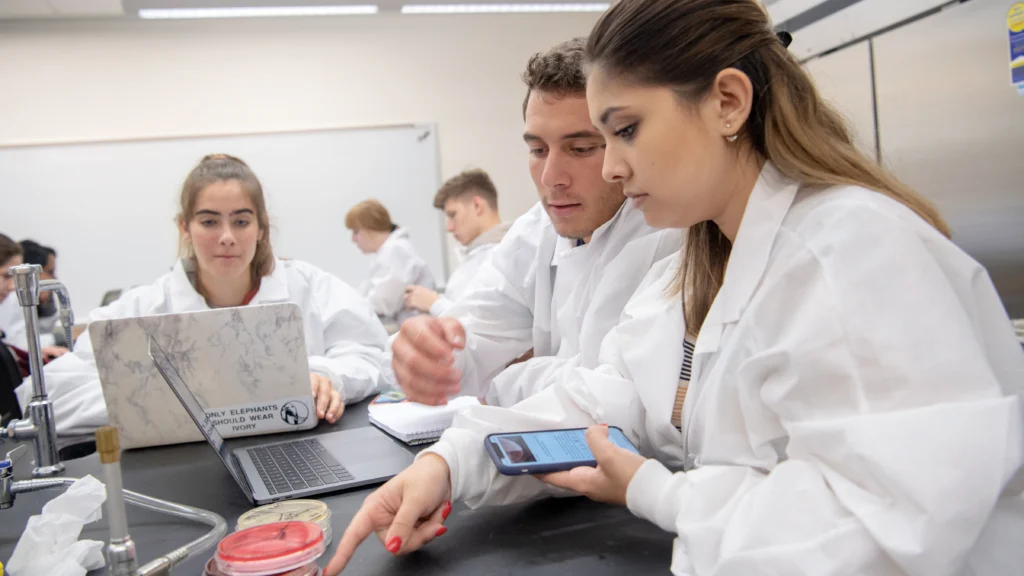
Outstanding Academics
All the students who participate in the seven-year partnership program with Penn Dental are biology majors, and many other predental students are as well. Assistant Professor of Biology Giancarlo Cuadra, who serves as the faculty advisor for the Penn Dental students, says Muhlenberg’s strong biology curriculum is an excellent foundation for those bound for dental school.
“For the first few courses, the intro courses in biology, we expose the students to quite a breadth and depth of biology not typical of most other schools. We have three courses introducing bio to students while most other schools only have two,” he says. “We want to be a little bit more broad and we want to go a little bit deeper into biology so that when the students begin to take upper-level courses, we don’t have to introduce them to ‘what is DNA’ and ‘what is RNA’ and ‘what are proteins.’ We know these students got so much information in these intro courses that we can move right along and talk about the more relevant content in the upper-level courses.”
Michelle James ’21, who’s currently at Penn as part of the partnership program, remembers taking a required course in biochemistry with Professor of Biology and Co-Director of Biochemistry Amy Hark during her final semester at Muhlenberg. That fall, she took a biochemistry course at Penn.
“I felt much more prepared for that than my other peers, who were stressed about it,” she says. “Obviously, in dental school you go into a little more depth, and it’s more focused on the mouth and on oral health, but there’s been nothing in my dental school classes where I’ve said, ‘I’ve never heard of this before.’”
Other aspiring dentists choose other majors while fulfilling the requirements of the prehealth track. For example, Ha and Hanel were neuroscience majors, while Garrison was a chemistry major. Still, all of them speak highly of the intensity of their Muhlenberg education. Ha specifically recalls the neuroscience course Receptors and Channels, in which students read almost exclusively scientific articles, as being on par with her Harvard courses in terms of difficulty.
As Hanel says, “Muhlenberg in general provided me with the skills and foundational knowledge not just to survive in dental school but to really thrive. I was really prepared in terms of workload and the foundation of knowledge I had. Obviously, the classes were challenging and it was an adjustment, but it didn’t feel like a really difficult adjustment. It was a smooth transition.”
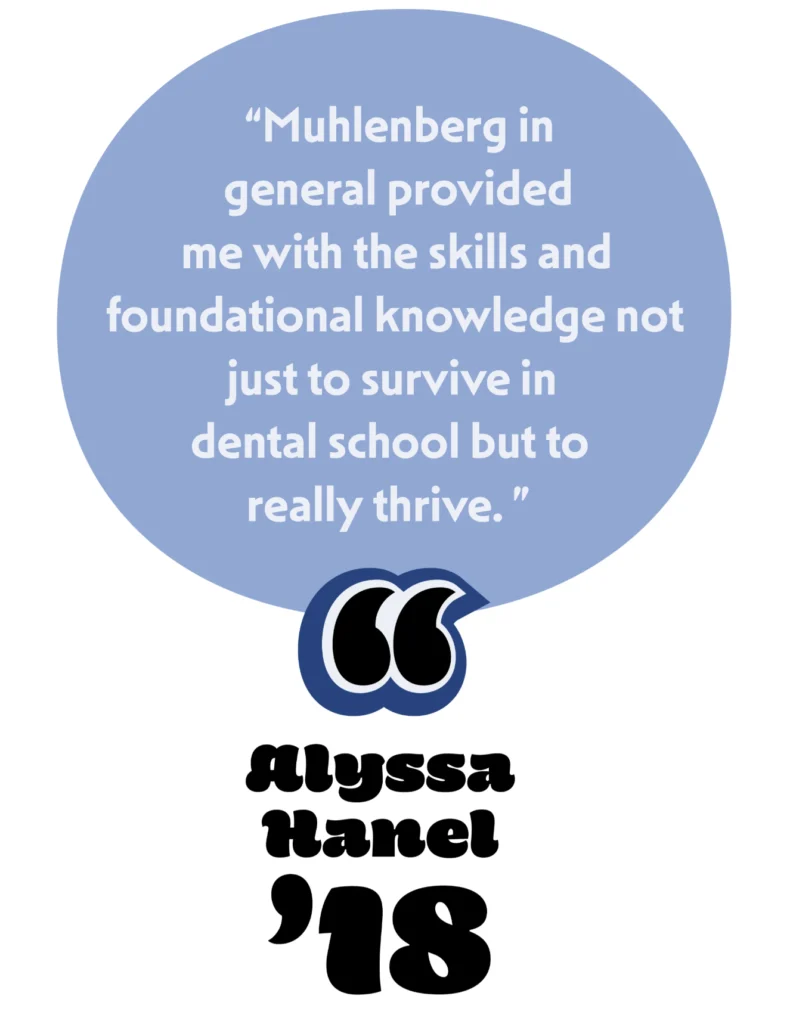
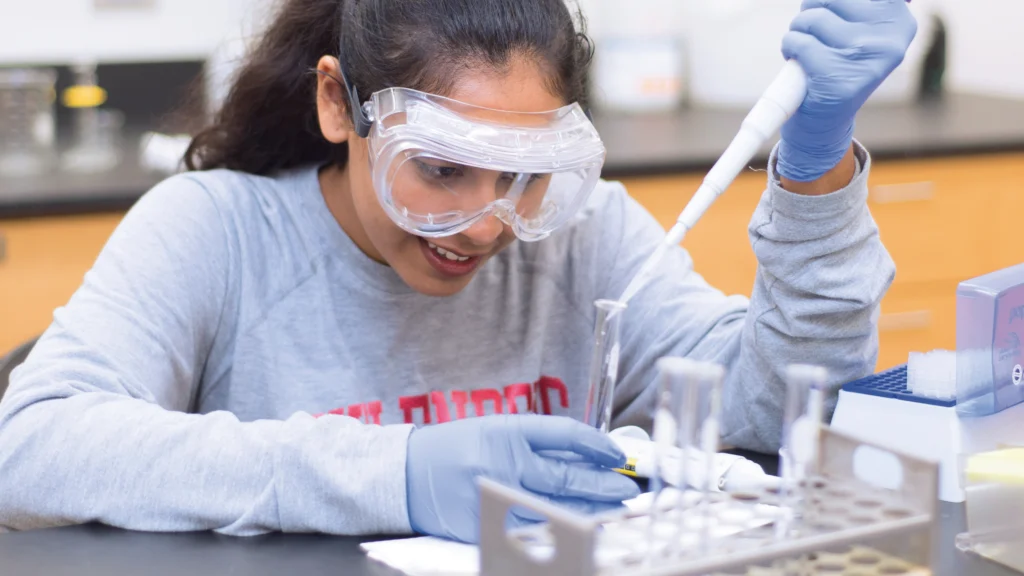
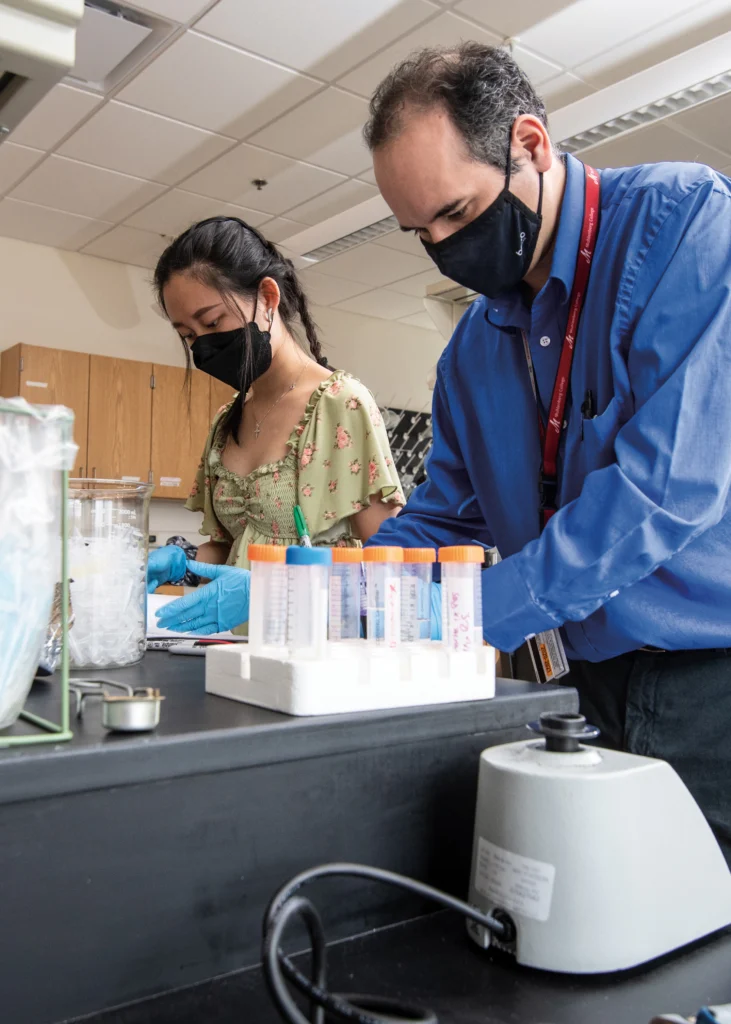
Research Opportunities
Muhlenberg prides itself on the wealth of undergraduate research opportunities it offers for students of all disciplines. Predental students often find a natural fit in Cuadra’s lab, which is focused on the oral microbiome. Cuadra has been with the College for five years and in that time has published five papers with student co-authors, one featuring Hanel as the lead author. Hanel, who minored in public health, also conducted social/behavioral research with Professor of Psychology Laura Edelman and now-President Kathleen Harring. She credits both experiences for preparing her for a postgraduate research partnership with colleagues in social work and public health that focused on patient-provider communication in clinics.
“Working closely with research faculty at Muhlenberg helped me develop skills I could use to pursue meaningful research when I was in dental school,” Hanel says.
While many predental students conduct research with Cuadra, they’re just as likely to find a home in another lab. Ha found hers in the lab of Professor of Chemistry Christine Ingersoll, who collaborates with Stanley Road Associate Professor of Neuroscience Jeremy Teissere on research exploring plant compounds’ effects on the brain. Vijay Rao ’22, who’s currently at Penn as part of the partnership program, was drawn toward Associate Professor of Neuroscience Jordanna Sprayberry’s lab, where he researched how bumblebees integrate visual and olfactory cues.
“When I was looking at labs, I wanted something I wasn’t going to study for the rest of my life. All my classes, other than the general academic requirements, were within bio and the prereqs for dental school. I didn’t get to dip my feet into neuroscience except for this research,” Rao says. And even though he knew he wanted to be a dentist since he was in middle school, he adds: “Looking at bees is a lot more interesting than looking at dental plaque.”
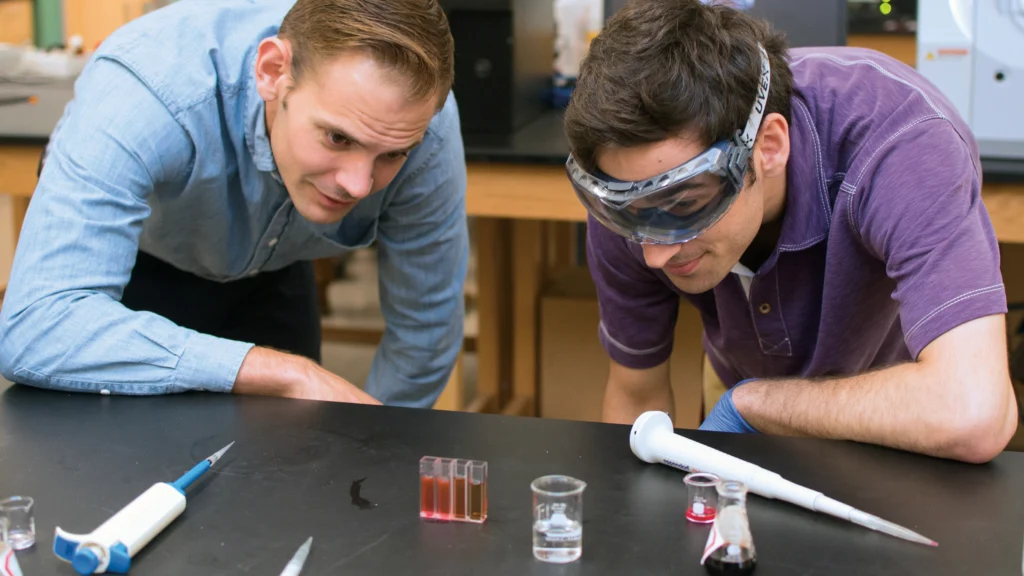
On-Campus Support
Pachter advises all prehealth students, all of whom have a faculty advisor as well. While the faculty advisor approves the students’ courses each semester, Pachter helps with a bigger-picture map: What classes do particular dental schools want to see on students’ transcripts? How should a student organize their time at Muhlenberg if they want to study abroad? What can a student do, inside the classroom and beyond it, to make themselves a stronger applicant? The goal is to have these conversations as early as possible—if a student wants to go straight from Muhlenberg to dental school, they need to apply in the summer after their junior year.
“The advice I give them all is to apply when you’re the best applicant you can be,” Pachter says. For a few students, senior year provides an extra opportunity to raise grades or gain research or shadowing experience, though Pachter notes that almost all our predental students apply before senior year. She also walks students through the application process, from helping them narrow down a list of schools to target to collaborating with the Career Center to conduct mock interviews.
In addition to his role as faculty advisor for the students in the accelerated Penn program and other bio majors interested in dental school, Cuadra is also advisor to the Predental Club. Several alumni mentioned the peer-to-peer support this group offers as critical to their successful acceptance to dental school.
“It gave me a community to lean on when things got a little stressful in the predental application process,” Ha says. “I had a lot of impostor syndrome as well as not being sure what the next steps were because I was a first-generation student. I found that family within the predental community.”
Small classes, and the ability to get to know faculty, are major contributors to the success of Muhlenberg’s dental alumni. Rao says he chose Muhlenberg over other institutions offering accelerated programs because, even at the smaller schools, he would have been in intro lectures with hundreds of other students. He wasn’t interested in being “a little fish in a big pond,” he says: “Once or twice [at Muhlenberg], when I didn’t perform as well as I usually did on an exam, a professor would send me an email and be like, ‘What happened?’ At literally any other school, I wouldn’t get that email.”
When Ha went looking for dental schools, one of the appealing parts about Harvard was its incredibly small class size. She knew that she had already thrived in such an environment.
“Like my experience at Muhlenberg, where it was easy to build relationships with my peers and mentors, I get that same experience at Harvard,” she says. “I value that one-on-one time.”
